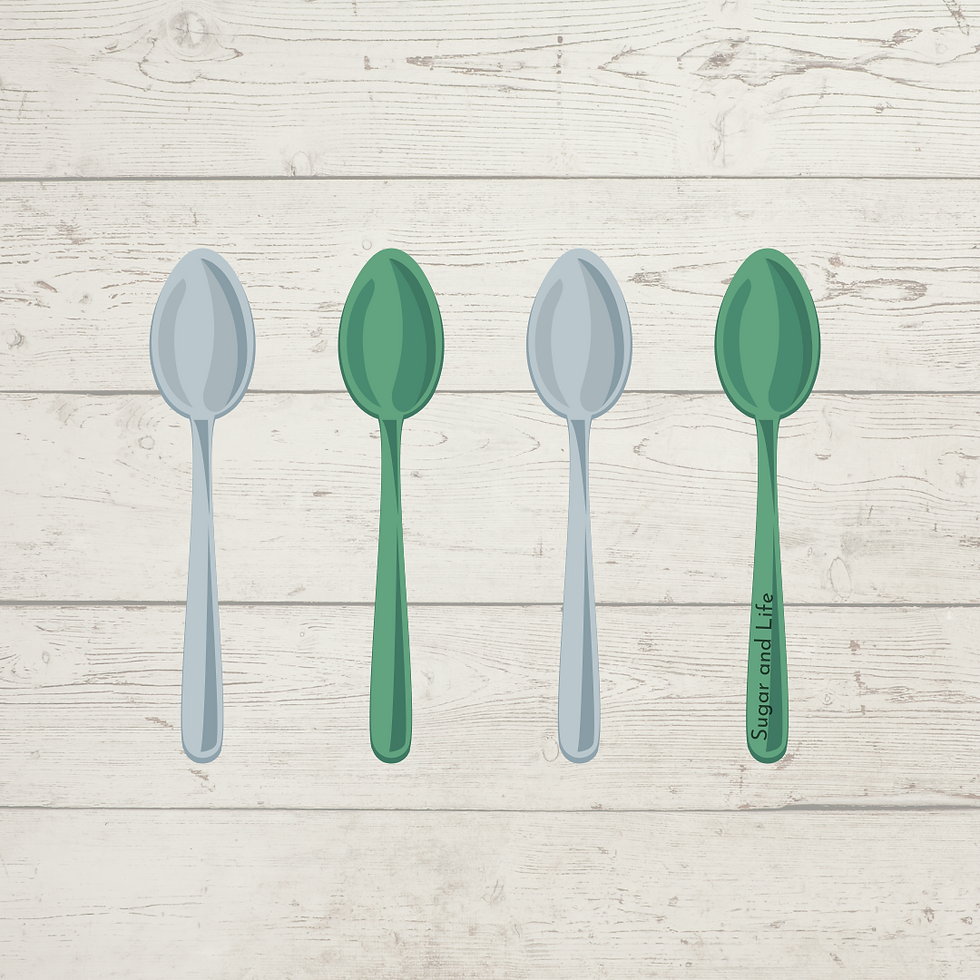Explaining your pain with spoons

When you live with chronic pain or a 'invisible disease' your life is often filled with judgement and the inability to show others just how much you are struggling on a day to day basis. A lot of people seem to forget that just because you can't see something doesn't mean it doesn't exist! I mean can you see pins and needles or that brain freeze you got from eating that ice-cream too quickly? NO! But you can often explain how you're feeling because it's something most people experience in their life.
Unfortunately that's not the case with chronic illnesses! Unless you live with chronic pain you can't begin to imagine the pain one lives with on a day to day basis. This makes it incredibly hard to verbalise and express to others how you are feeling without being labelled "lazy" or "dramatic"
Christine Miserando, a fellow chronic illness warrior, came up with the amazing Spoon Theory as a way of helping communicate what it's like to live with a chronic illness on a day by day basis. The spoon theory is well known and loved in the disability world, with many of us who suffer from chronic illnesses referring to ourselves as "spoonies". The spoon theory has been a valuable tool in many of our journeys, as it's been a way of helping those around us to gain a better understanding and know how to best support us.

So what is the Spoon Theory?
The Spoon Theory is pretty simple, a person starts their day with a certain number of metaphorical spoons, each of which represent pockets of energy that individual has available to use. As a person goes about their day completing different tasks their spoons disappear, representing the amount of energy each task has taken. BUT there are a few key factors that need to be taken into account when trying to understand the spoon theory, as this is what makes it vary from each person.
Not everyone has the same amount of spoons
The maximum number of spoons available to a person to use is completely up to them and their situation. So on a good day one person might have 10 spoons on the table available to be used, whereas the next person might only have 6 spoons available on a good day. The amount of spoons available to a person is completely personalised for how they find it easiest to track their energy use.
The amount of spoons available can change daily
Just because a person might choose to have a maximum of 10 spoons available on any given day, doesn't mean they get to start everyday with all 10. Depending on what is going on in life, how much pain they're currently in, what activities were done in the previous days, their general health etc. All of these factors impact the number of spoons one might have available each day. So on a perfect day where you are feeling great then all of those 10 spoons are your table ready to be used, but if you're going through a flare up or you've had a big couple of days previously, then you might only have 5 spoons available.
Activities each have their own energy usage
An activity doesn't automatically use a whole spoons worth of energy, the amount of the spoon that is used varies greatly from person to person depending on their situation and what they personally consider a hard or easy task. For example going to the shops might take a whole spoon whereas having a shower might only take half a spoon. The amount of energy each activity uses can change on daily basis depending on how the individual is feeling

How is the spoon theory helpful?
The spoon theory provides a way for us to quantify our pain and overall wellbeing, making the line of communication we have with our loved ones and support workers a lot clearer. It uses a common object which everyone knows about helping it to be easily visualised when talking to others.
The Spoon Theory is also a great tool to use in management of your day to day life! It allows you to assess each morning just how much energy you have available to use, giving you the opportunity to plan out your day ahead so that you are able to enjoy every day as much as possible!
The spoon theory is by no means perfect as it can't account for any unexpected changes to your day. So when planning out your day one should always try and ensure leaving a few spoons spare where possible to allow for these changes. Doing this also helps avoid burnout as you aren't constantly using up all your energy which would then result in have fewer spoons available in the coming days. In fact leaving spoons on the table at the end of the day where possible often gives you the freedom to have an extra spoon or two on the hard days because you haven't burnt yourself out in the lead up.

Comments